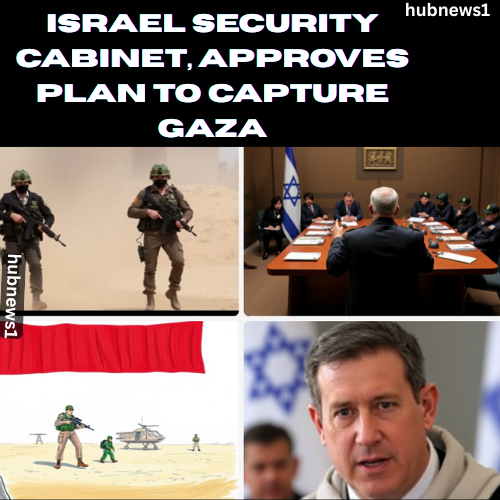
US and Iran to begin critical nuclear talks as Trump threatens war
hubnews1-US and Iran to start vital nuclear talks as Trump warns of war Iran and the United States start high-stakes negotiations to secure a new nuclear agreement on Saturday preceded by President Trump’s warning of military action as a result of failure and Tehran’s warning any attack on it would lead the US into a wider Middle Eastern war.
The session, to take place in the Gulf Arab state of Oman, potentially would be the first direct dialogue between Iranian and American officials in a decade, although Iran insists they will remain indirect – with mediators playing the role of go-betweens between the two countries.
President Donald Trump has placed a two-month timeline on Iran to agree to a deal that would result in Iran reducing its nuclear presence or eliminating the program entirely.
“I would like them to not have a nuclear weapon. I would like Iran to be a great, wonderful, happy nation, but they cannot have a nuclear weapon,” Trump said on Air Force One en route to Florida last night.
The negotiations follow on from the fact that the Islamic Republic has watched its regional projection of power reduced enormously in the last 18 months through Israeli attacks on its surrogates, the ousting of Bashar al-Assad from Syria, and unprecedented cross-border attacks within its own territories.
The stakes on Saturday are high: Trump said military strikes are possible against Iran if a new nuclear deal isn’t reached, though he said Israel – which has been advocating for an attack on Iran – would take the lead.
“If it requires the military, we’re going to have a military,” Trump said on Wednesday. “Israel will obviously be very much involved in that. They’ll be the leader of that.”
But Iran has consistently declined to negotiate on its terms. It set out its “red lines” for the negotiations on Friday, including “threatening” rhetoric, “excessive demands” on Iran’s nuclear programme, and on Iran’s defence industry, as per semi-state news agency Tasnim, presumably its ballistic missile programme, which the United States’ regional allies view as a threat to their security.
The visit this weekend to Oman of Trump Middle East envoy Steve Witkoff for negotiations with Iranian officials will add another document to the stack of complicated and intractable problems on his growing portfolio following a face-to-face meeting on Friday with Russian President Vladimir Putin over Ukraine in St Petersburg.
Earlier on Friday, White House press secretary Karoline Leavitt stated at a press briefing: “These will be direct talks with the Iranians, and I want to make that very clear.” She further added Trump’s ultimate goal is to “ensure that Iran can never obtain a nuclear weapon.”
Though the exact agenda of the talks is not known, the president promised to obtain a “stronger” agreement than the Obama-era 2015 nuclear agreement, which aimed at limiting Iran’s nuclear activities. Trump in 2018 had pulled out of the agreement calling it a “disastrous” one which provided money to a terrorist-supporting regime.
READ MORE: donald trump supreme court,Sides With Wrongly Deported Migrant
Trump is seeking to make a deal that will keep Iran from acquiring a nuclear weapon, but hasn’t described it differently than the original agreement, the Joint Comprehensive Plan of Action, or JCPOA. That agreement was meant to curtail Iran’s nuclear program in return for the removal of Western sanctions.
US officials have signaled that they would try to push Iran to abolish its entire nuclear program, including its civilian energy aspect, to which Tehran is legally entitled under a UN nuclear treaty.
Iranian officials, however, have rejected that option as a non-starter and accused the US of using it as a pretext to undermine and eventually overthrow the Islamic Republic.
Tehran views its nuclear program as its strongest source of leverage and giving it up would leave the nation perilously vulnerable, experts say.
But the administration also indicates that it is not merely considering a potential nuclear agreement: It also wants to negotiate with Iran on a wide array of issues, a senior administration official said.
The Saturday meeting will gauge whether Iran is ready to engage in high-level talks, which could open the door to negotiations on Iran’s nuclear program, ballistic missile program, and proxy support in the region, the official stated.
“Iran would be desperate to get back into something like JCPOA, so the question is: are they going to put anything else on the table?” the official said.
Advisers try carrot while Trump wields stick
While Trump is holding the threat of war over the failure of talks, other American officials have been sounding much less belligerent.
Witkoff reiterated at the end of last month that a diplomatic solution was within grasp. In an interview with Tucker Carlson, he bragged about US military power and outlined Iran’s weaknesses but was quick to explain: “This is not a threat.”
If the Iranians do ever hear this broadcast, this is not me making a threat. It’s the president who has that capability,” he added.
One former US official suggested the negotiations can be a starting point for both sides to explore whether further talks are even on the table.
“Saturday at best is an exercise in table setting, to see if a deal is even possible,” said a previous US official who has negotiated with Iran on nuclear matters.
“I think Iran will claim to show flexibility because the devil is in the details of nuclear negotiations, and the details will not be discussed in this initial episode,” the previous official stated.
For now it’s not a negotiation, State Department spokesperson Tammy Bruce warned, but a session with a mission.
“The very specific thing that must be achieved, which would make the world a much safer place, is to ensure that Iran never acquires a nuclear weapon,” Bruce said to reporters.
Iran’s supreme leader signaled with a recent letter to Trump a willingness to negotiate that might result in Iran committing to steps that would keep it from acquiring a nuclear weapon.
But the lead-up to Saturday’s high-stakes negotiations have been rocky.
There were times this week there have been doubts among participants if they were going to happen at all, considering Iran was indicating that it would only deal indirectly and Trump was adamant there would be a face-to-face meeting. But through Friday, everything seemed on schedule to move ahead, the sources with knowledge of the planning indicated.
Constant threats against Iran serve as backdrop to talks
In a Washington Post op-ed this week, Foreign Minister Abbas Araghchi warned that a war against Iran would draw the US – and the region – into an expensive conflict that a president elected on an anti-war ticket would be reluctant to pursue.
“We cannot envision President Trump wanting to become another US president bogged down in a disastrous war in the Middle East – a war that would soon spread throughout the region and cost exponentially more than the trillions of taxpayer dollars that his predecessors spent in Afghanistan and Iraq,” he wrote.
READ MORE:6 dead, including 3 children, after helicopter plummets into Hudson River
Trump administration officials are attributing Israel’s actions to the situation Iran is in, with Witkoff stating that Israel’s airstrikes left Iran’s defenses “eviscerated.”
But while US administration officials have shown a united front with Israel publicly, Trump’s announcement this week regarding Saturday’s talks appeared to catch Israeli Prime Minister Benjamin Netanyahu, who sat beside him, by surprise. Two Israeli sources informed CNN that the announcement was “certainly not” to Israel’s taste.
On his return, Netanyahu stated that if the nuclear negotiations prolong, it could attack Iran anyway.
CNN had earlier reported that US intelligence officials alerted both the Biden and Trump administrations that Israel is likely to attack targets linked to Iran’s nuclear program as part of that nation’s mission to impose a regime change on the Islamic Republic.
FAQ:
1. What are the upcoming US-Iran nuclear talks about?
The talks aim to address concerns over Iran’s nuclear program, including compliance with previous agreements (such as the JCPOA, or Joint Comprehensive Plan of Action) and potential new negotiations to prevent further escalation.
2. Why is this round of talks considered “critical”?
Tensions between the US and Iran have been high, with threats of military action and economic sanctions. These talks could either ease tensions or lead to further confrontation, depending on the outcome.
3. What role does former President Trump play in this situation?
Former President Donald Trump has recently made statements threatening military action against Iran if it advances its nuclear program. His comments add pressure to the negotiations, as his administration previously withdrew from the JCPOA in 2018.
4. How has Iran responded to Trump’s threats?
Iran has consistently denied seeking nuclear weapons and has condemned US threats. Iranian officials have stated that they will only engage in meaningful talks if sanctions are lifted and the US shows commitment to diplomacy.
5. What are the possible outcomes of these talks?
Possible scenarios include:
- A renewed diplomatic agreement limiting Iran’s nuclear activities.
- A breakdown in talks, leading to increased sanctions or military posturing.
- A temporary freeze in tensions with no major breakthroughs.
6. How does this affect global security?
The US-Iran relationship significantly impacts Middle East stability, oil markets, and non-proliferation efforts. Failed talks could heighten regional conflicts, while successful diplomacy may reduce risks of war.
7. Where can I find updates on these negotiations?
Follow updates from reliable news sources, official statements from the US State Department and Iranian government, and international bodies like the United Nations or IAEA.
iran nuclear deal,donald trump,iran nuclear talks,nuclear talks,nuclear weapons,government and politics,trump,trump’s nuclear deal threat to iran,trump threatens secondary tariffs on iran,iran nuclear deal talks in vienna,iran nuclear deal talks,us iran nuclear talks,nuclear deal talks,trump iran nuclear deal,iran nuclear deal trump,why is trump threatening iran?,president trump,trump iran nuclear ultimatum,trump military threat to
Copyright hubnews1 Recorder, 2025




